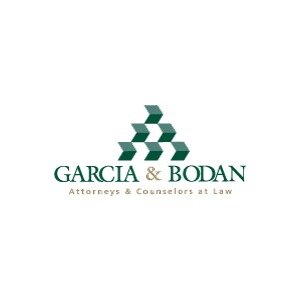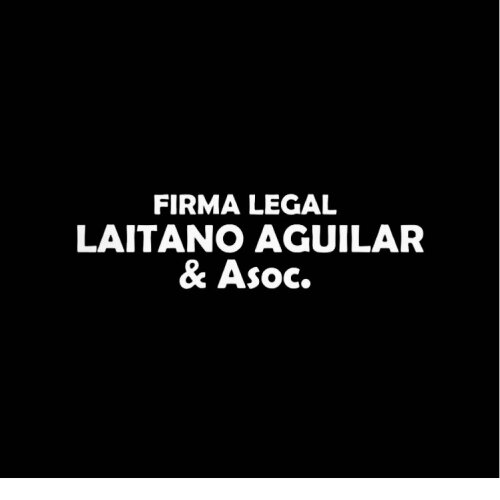Best Employment & Labor Lawyers in Honduras
Share your needs with us, get contacted by law firms.
Free. Takes 2 min.
Or refine your search by selecting a city:
List of the best lawyers in Honduras
About Employment & Labor Law in Honduras
Employment and labor law in Honduras is governed primarily by the Honduran Labor Code. This legal framework regulates the rights and obligations of both employers and employees, providing protections around issues such as wages, working conditions, and employee benefits. The Labor Code is designed to ensure fair treatment in the workplace and to promote productive labor relations. Honduras is also a member of the International Labour Organization, which influences its labor legislation, promoting labor standards and decent work for all.
Why You May Need a Lawyer
There are several situations where you might need legal help in the field of employment & labor in Honduras. Some common scenarios include:
- Unfair dismissal or wrongful termination disputes.
- Issues related to unpaid wages or overtime disputes.
- Discrimination or harassment in the workplace.
- Negotiation and drafting of employment contracts.
- Workplace safety concerns or work-related injury claims.
- Collective bargaining or union-related issues.
- Advice related to employee benefits and pension plans.
An experienced employment lawyer can provide guidance and representation to protect your rights and interests in these situations.
Local Laws Overview
Understanding key aspects of employment and labor laws in Honduras can be crucial for both employees and employers. Here are some highlights:
- Employment Contracts: Most employment relationships should be formalized with a contract that clarifies terms and conditions.
- Minimum Wage: Honduras sets a minimum wage that varies by region and industry. Employers must adhere to these regulations.
- Working Hours: Standard workweeks are generally capped at 44 hours, with overtime paid at a premium rate.
- Paid Leave: Employees are entitled to annual vacation days, sick leave, and public holidays.
- Termination Rules: Employers must provide just cause for dismissal, following specific procedural requirements. Severance payments may apply.
- Social Security: Employers and employees must contribute to the Honduran Social Security Institute (IHSS), which provides various benefits.
- Collective Bargaining: Workers have the right to join trade unions and engage in collective bargaining.
Frequently Asked Questions
What rights do employees have in terms of minimum wage?
Employees in Honduras are entitled to minimum wage according to the law, which varies depending on the sector and geographic location. Employers are obligated to comply with these wage regulations.
Can employees be terminated without cause?
No, Honduran law mandates that dismissals should be based on justified cause. If an employee is terminated without cause, they may be entitled to severance pay and other compensatory benefits.
How is overtime calculated?
Overtime work must be compensated at a rate higher than the regular hourly wage. The exact premium is specified by the law, typically at 1.5 times the normal rate.
What is the standard workweek in Honduras?
The typical workweek in Honduras is 44 hours, usually spread over six days. Any work beyond this threshold qualifies as overtime.
Are there specific laws against workplace discrimination?
Yes, the law prohibits discrimination based on race, gender, age, religion, and other factors in employment practices. Victims of discrimination can seek legal recourse.
Do employees have the right to form or join unions?
Yes, employees have the right to organize and join trade unions as well as participate in collective bargaining efforts.
What benefits are employees entitled to under the social security system?
The social security system in Honduras provides various benefits such as health insurance, maternity leave, and pension plans, funded through contributions by both employers and employees.
What should an employment contract include?
An employment contract should clearly outline job duties, salary, working hours, benefits, and conditions of termination to ensure clarity and protect both parties.
How can workplace grievances be addressed?
Workplace grievances can often be addressed informally through direct communication with employers or through formal channels such as labor courts and mediation.
What is the procedure for reporting workplace safety violations?
Workplace safety violations can be reported to the relevant governmental agency responsible for labor inspections, often leading to investigations and necessary corrective actions.
Additional Resources
For those seeking more information or assistance, consider reaching out to the following resources:
- The Ministry of Labor and Social Security of Honduras.
- Honduran Bar Association for finding qualified legal representatives.
- Local trade unions which offer support and assistance to their members.
- Non-governmental organizations focused on labor rights advocacy.
Next Steps
If you find yourself needing legal assistance in the area of employment and labor, consider taking the following steps:
- Document all relevant details pertaining to your issue, such as contracts, communications, and any evidence of misconduct or violations.
- Seek initial advice from legal aid services or consult with an employment lawyer who specializes in labor law in Honduras.
- Research potential attorneys, ensuring they are experienced and qualified in handling employment cases.
- Arrange consultations to discuss your case and explore potential legal strategies and solutions.
- Consider mediation or negotiation as potential first steps before pursuing litigation, which can be costly and time-consuming.
Taking informed and carefully considered actions can help protect your rights and ensure a fair resolution to your employment-related issues in Honduras.
Lawzana helps you find the best lawyers and law firms in Honduras through a curated and pre-screened list of qualified legal professionals. Our platform offers rankings and detailed profiles of attorneys and law firms, allowing you to compare based on practice areas, including Employment & Labor, experience, and client feedback.
Each profile includes a description of the firm's areas of practice, client reviews, team members and partners, year of establishment, spoken languages, office locations, contact information, social media presence, and any published articles or resources. Most firms on our platform speak English and are experienced in both local and international legal matters.
Get a quote from top-rated law firms in Honduras — quickly, securely, and without unnecessary hassle.
Disclaimer:
The information provided on this page is for general informational purposes only and does not constitute legal advice. While we strive to ensure the accuracy and relevance of the content, legal information may change over time, and interpretations of the law can vary. You should always consult with a qualified legal professional for advice specific to your situation.
We disclaim all liability for actions taken or not taken based on the content of this page. If you believe any information is incorrect or outdated, please contact us, and we will review and update it where appropriate.
Browse employment & labor law firms by service in Honduras
Honduras Attorneys in related practice areas.
Browse employment & labor law firms by city in Honduras
Refine your search by selecting a city.

















